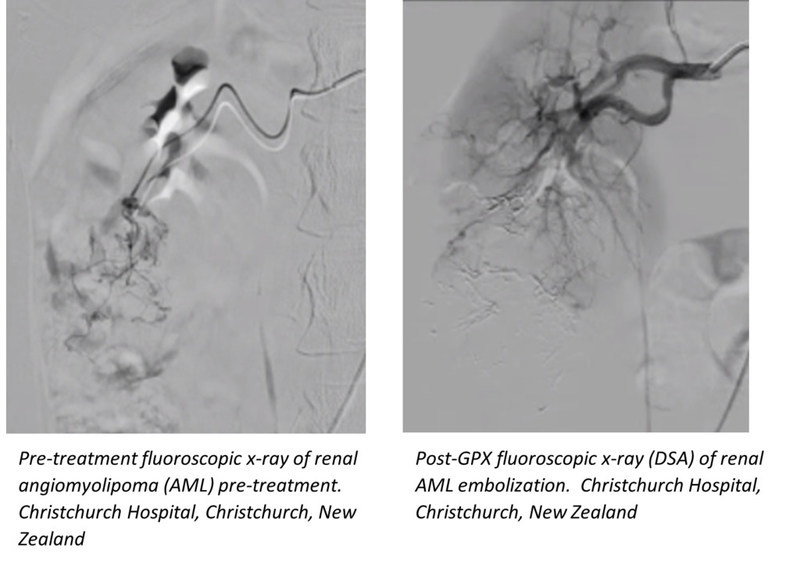
Fluidx Medical has announced in a press release that its GPX embolic device was used to effectively devascularise a large renal tumour with multiple feeding vessels as part of a multicentre clinical trial.
“This could have been a challenging case since it involved a large renal tumour fed by small, low flow, tortuous vessels,” said Martin Krauss, head of Interventional Radiology at Christchurch Hospital in Christchurch, New Zealand. “We were able to use our standard embolic microcatheter to deliver GPX in a highly controlled fashion.
“Since we were not worried about catheter entrapment, we could take our time and ensure that we occluded all targeted vessels completely. GPX flowed distally very well, completely filling the targeted region. Based on our case experiences, GPX is a great product for effectively filling distal vasculature.”
The GPX embolic device is an innovative embolic designed for simple preparation and controlled delivery, according to the Fluidx Medical press release. The device is packaged ready-to-use in a syringe, can be prepped tableside by the clinician in about 30 seconds, and may be delivered through standard microcatheters.
GPX technology is a low viscosity, aqueous-based solution in a syringe that solidifies into a durable embolus upon delivery without polymerisation or dimethyl-sulfoxide (DMSO) precipitation. GPX is designed to occlude blood vessels independent of a patient’s coagulation situation—as per data the company has on file.
“Treating a tumour with multiple feeding vessels in a controlled, thorough manner without risk of catheter entrapment can improve patient care and minimise the need for follow-on procedures,” said Libble Ginster, CEO of Fluidx Medical. “GPX demonstrates improved control and precision. GPX does not require 20-plus minutes of preparation time or the clinician to use a special catheter system. The simplicity of GPX preparation makes real-time clinical decision-making possible. We continue to be excited about the GPX portfolio and its future in advancing cancer care.”
The GPX embolic device is under development and does not have marketing clearance or approval in any market at this time, but is permitted for investigational use—in New Zealand—only, the Fluidx Medical release states.











